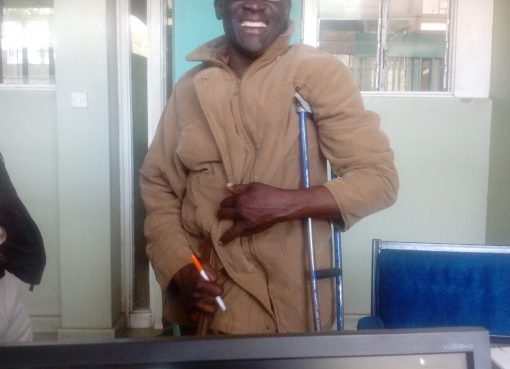The Slovak Republic has partnered with the County Government of Busia in creating ICT hubs within the county in efforts to promote digital space for youths, enhancing e-literacy level in Education, Health, Agriculture, and Environmental management.
Slovakia Ambassador to Kenya Mrs. Katarina Zuffa Leligdonova while addressing the press, said they have identified areas of cooperation with the County Government of Busia targeting provision of digital learning materials to the Early Childhood Education (ECD) and primary schools in their first phase.

“We are also keen on digitization programs in primary schools, our main aim is to ensure we address challenges posed by technophobia among learners,” she said.
Chief Administrative Secretary in the Ministry of Foreign Affairs, Ababu Namwamba present, said Slovakia has already rolled out digitization in seven primary schools in Bunyala and appealed for the program to be cascaded to other sub counties.
Namwamba noted that the school digitization program will be followed by installation of digital hub in Busia town and other education centres that will make the county a centre of knowledge.
“As a country we should strive not to produce illiterate graduates in ICT. The world depends on a global economy intertwined with the internet to become a small village,” said Namwamba.
Busia Deputy Governor Moses Mulomi thanked the Slovak Republic for their long cordial relations with the County Government in various areas such as agriculture, ICT and education.
Kenya is prioritizing the use of Information, Communication and Technology (ICT) in teaching and learning at both basic and higher education levels, including through collaborations with international agencies and organizations.
In response to technological changes, the 2006 National ICT Policy was revised, resulting in the development of the 2019 National ICT Policy, which aims to achieve a knowledge-based society and ensure the availability of accessible, efficient, reliable and affordable ICT services.
The Digital Literacy Programme was initiated in 2016 with the aim to distribute digital devices to primary school students and to train teachers in the delivery of digital learning content. Overall, approximately 81,000 teachers were trained under the programme.
Ministry of Education, Science and Technology and the Teachers Service Commission (TSC) have also targeted teachers for ICT training to provide both basic and enhanced ICT competencies.
Busia Deputy County Commissioner Kipchumba Ruto lauded the partnership between the two countries noting that it will help minimize insecurity level within the country hence boosting economic development.
“Introduction of high-speed internet, computers, tablets and other digital tools in schools and urban centres will open up more opportunities to our youths, hence combating criminal activities within the county,” he said.
By Absalom Namwalo and Salome Alwanda





